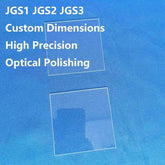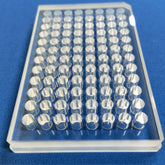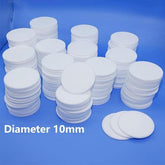The advantages and characteristics of quartz reactors
Quartz reactors represent a significant type of apparatus utilized within the industries of chemistry, materials science and biology. The following aspects primarily demonstrate their advantages and characteristics:
1.Resistance to high temperatures
Quartz reactors are capable of withstanding high-temperature environments, with a melting point of up to 1700°C. They can sustain reliable performance in high-temperature reaction conditions, thereby ensuring the precision of experimental results. Quartz reactors are a highly versatile solution for industries that require high-temperature chemical reactions.

2. Resistance to chemical corrosion
Quartz reactors boast excellent corrosion resistance, with the ability to withstand exposure to most acids, alkalis and organic solvents. They are engineered for long-term stability in a variety of corrosive media. This feature enhances the stability of the quartz reactors during chemical reaction processes, thereby preventing corrosion of the equipment by chemical substances.
3. Superior optical performance
Quartz reactors boast excellent optical performance and outstanding light transmission, making them ideal for optical reaction research within the ultraviolet, infrared and other spectral ranges. This feature makes quartz reactors suitable for a wide range of applications in the field of photochemistry.

4. Excellent thermal conductivity
Quartz reactors are characterized by their excellent thermal conductivity, which facilitates rapid heat conduction and dissipation. This property is advantageous in terms of controlling reaction temperature and enhancing experimental efficiency. Meanwhile, its coefficient of thermal expansion is minimal, ensuring dimensional stability at high temperatures.
5. Easy to clean and maintain
The surface of the quartz reactor is smooth, making it difficult for impurities to adhere and simplifying the cleaning process. Its compact design and ease of disassembly facilitate care and maintenance. This feature enhances the durability of the quartz reactor, thereby extending its service life and reducing overall usage costs.
6. Wide range of application fields
The numerous advantages of quartz reactors have led to their extensive utilization in diverse fields, including chemistry, materials science and biology. For instance, quartz reactors play a significant role in the synthesis of new materials, drug research and development, photochemical reactions, and other aspects.

In conclusion, quartz reactors, with their characteristics of high-temperature resistance, chemical corrosion resistance, and superior optical performance, have become indispensable important equipment in the field of scientific research. It is anticipated that, in consequence of the ongoing technological developments, quartz reactors will be utilized in a greater number of fields.






